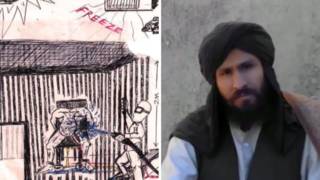
Former CIA Director Robert Gates is now the president of Texas A&M University.
At Arizona State Michael Crow became president after a stint at In-Q-Tel Inc., the nonprofit venture-capital arm of the CIA. He had previously served as the Executive Vice Provost of Columbia University.
The two appointments mark just two of the examples of how the CIA has reemerged as a major force on U.S. campuses after Sept. 11.
At a time when American companies are cutting back on hiring and research support, the Wall Street Journal reports universities are turning to the 13 federal intelligence agencies, including the CIA, to pick up the slack. Academia, long suspicious of the CIA, has been receptive–for reasons of both patriotism and self-interest.
Last month Journal reporter Daniel Golden outlined the reemergence of the CIA on campus in a front-page article titled “After Sept. 11, the CIA becomes a force on campus.”
He wrote,
“Since the CIA’s founding in 1947, the agency’s relationship with academe has waxed and waned. Ivy League faculty largely created the CIA’s analytic branch, which studies other countries but isn’t directly involved in spying on them. Then, in the Vietnam era, the agency became anathema on campus for its covert activities in Latin America and elsewhere. In the 1980s, it sought to re-establish ties, sponsoring as many as 75 academic conferences a year. After the Soviet Union collapsed, the agency closed its research-and-development office and cut back funding for academia. Now, the funding taps have been turned on again.”
Golden goes on to report that shortly after last year’s terrorist attacks, the CIA’s In-Q-Tel Inc. sponsored a brainstorming session in a New Jersey conference center between CIA researchers and another 70 academic computer scientists.
The conference was organized by Michael Crow who was then an administrator at Columbia University. He later joined the CIA’s In-Q-Tel.
Since Sept. 11, the CIA has increased its hiring goals by 85 percent, and it’s looking to colleges to replenish its ranks. The CIA is sending intelligence officers to lecture at professional schools such as Fletcher School of Law & Diplomacy at Tufts University. The Journal reports that about 30 academic political scientists and economists are now moonlighting with the intelligence community. Over the past two years the CIA’s Intelligence Technology Innovation Center has sponsored $2 million a year of unclassified research by postdoctoral fellows at Sandia National Laboratories as well as 18 universities, including Harvard, Stanford, Carnegie Mellon, the University of Michigan and Louisiana State.
Today we’ll talk to Wall Street Journal reporter Daniel Golden and then hear a debate between Columbia University professor Robert Jervis who works as a CIA consultant and University of Arizona David Gibbs who opposes the CIA’s presence on campuses.
Guests:
- Daniel Golden, Wall Street Journal reporter who wrote “After Sept. 11, the CIA Becomes a Force on Campus” which was published on October 7.
- Robert Jervis, professor of international affairs at Columbia University. Dr. Jervis is a fellow of the American Association for the Advancement Of Science and of the American Academy of Arts and Sciences. He began consulting the Central Intelligence Agency during the Carter Administration. He currently chairs the CIA Historical Review Panel.
- David Gibbs, professor at the University of Arizona who wrote a piece in the LA Times “Academics and Spies: The Silence That Roars.”
Related links:












Media Options